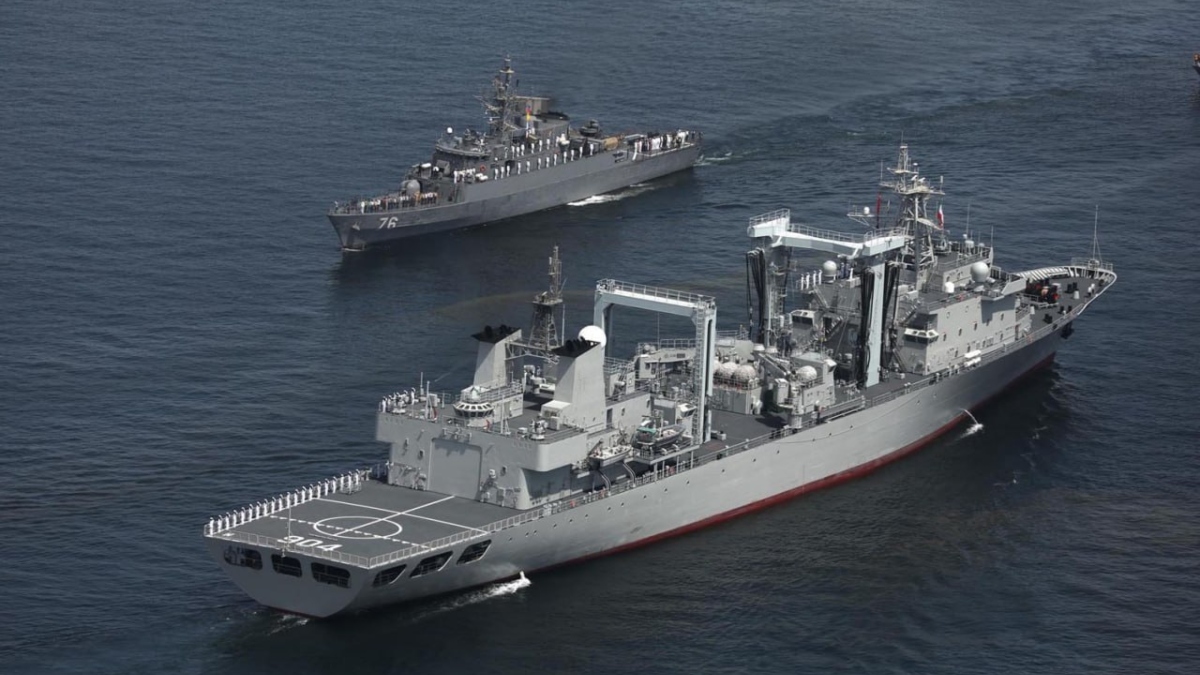Strait of Hormuz to be closed by Iran after Pentagon's Operation Midnight Hammer?
 Image of Iranian naval vessel used for representation | X
Image of Iranian naval vessel used for representation | X
In the wake of U.S. airstrikes targeting three key Iranian nuclear facilities, the country's parliament has reportedly approved the closure of the Strait of Hormuz, a vital global shipping lane. However, the final decision now rests with the Islamic Republic's Supreme National Security Council, according to a report by Reuters. The Supreme National Security Council is Iran's highest body for defense and security decisions and holds the authority to enforce actions of such significant consequence.
INTERACTIVE | Strait of Hormuz blockade explained: What are Iran's naval mines and how can they be used in a war with US, Israel?
According to Iranian state media, lawmakers in Tehran stated that Members of Parliament overwhelmingly favoured authorizing the closure of the Strait in response to the U.S.-Israeli aggression against the nation.
The Strait of Hormuz is considered the world’s most important oil artery, with about 20% of global oil and gas supplies passing through it. Situated between Iran and Oman, the Strait is approximately 21 km wide at its narrowest point, providing a passageway from the Persian Gulf to the Arabian Sea. It facilitates oil exports from key producers including Saudi Arabia, the UAE, Kuwait, and Iraq.
“If the Strait is choked, oil prices will rise, inflation will spike, and according to estimates, for every ten-dollar increase in crude oil prices, India’s GDP could shrink by 0.5%,” said Foreign Affairs Expert Robinder Sachdev in a statement to ANI.
Iran has previously threatened to close the Strait of Hormuz in response to mounting Western pressure. With the situation intensifying, oil companies are unlikely to risk their freighters being struck by Iranian naval mines, potentially prompting Tehran’s rivals to soften their positions. As a contingency, exporters have suggested shifting cargo from the Bandar Abbas port to Chabahar. Additionally, air freight rates have reportedly increased by 15%, and traders anticipate that both air and sea freight costs could rise further if the conflict escalates.
READ HERE | India’s GDP will suffer by 0.5 per cent if Iran closes Strait of Hormuz: Analyst
Op Midnight Hammer: US strikes Iran nuclear facilities
According to officials, U.S. President Donald Trump gave the go-ahead for the strikes only after receiving assurances of a high probability of success—a judgment reached after over a week of Israeli air attacks on Iran's nuclear and military infrastructure. These operations laid the groundwork for what some viewed as the U.S.'s crowning blow.
U.S. Defense Secretary Pete Hegseth, speaking on Sunday, emphasized that the strikes were not a prelude to regime change, and noted that private messages had been sent to Tehran encouraging a return to negotiations.
“This mission was not, and has not been, about regime change,” Hegseth told reporters at the Pentagon. However, he warned Iran against following through on any past threats of retaliation, adding that U.S. forces remain postured to defend themselves and act if necessary.
Middle East